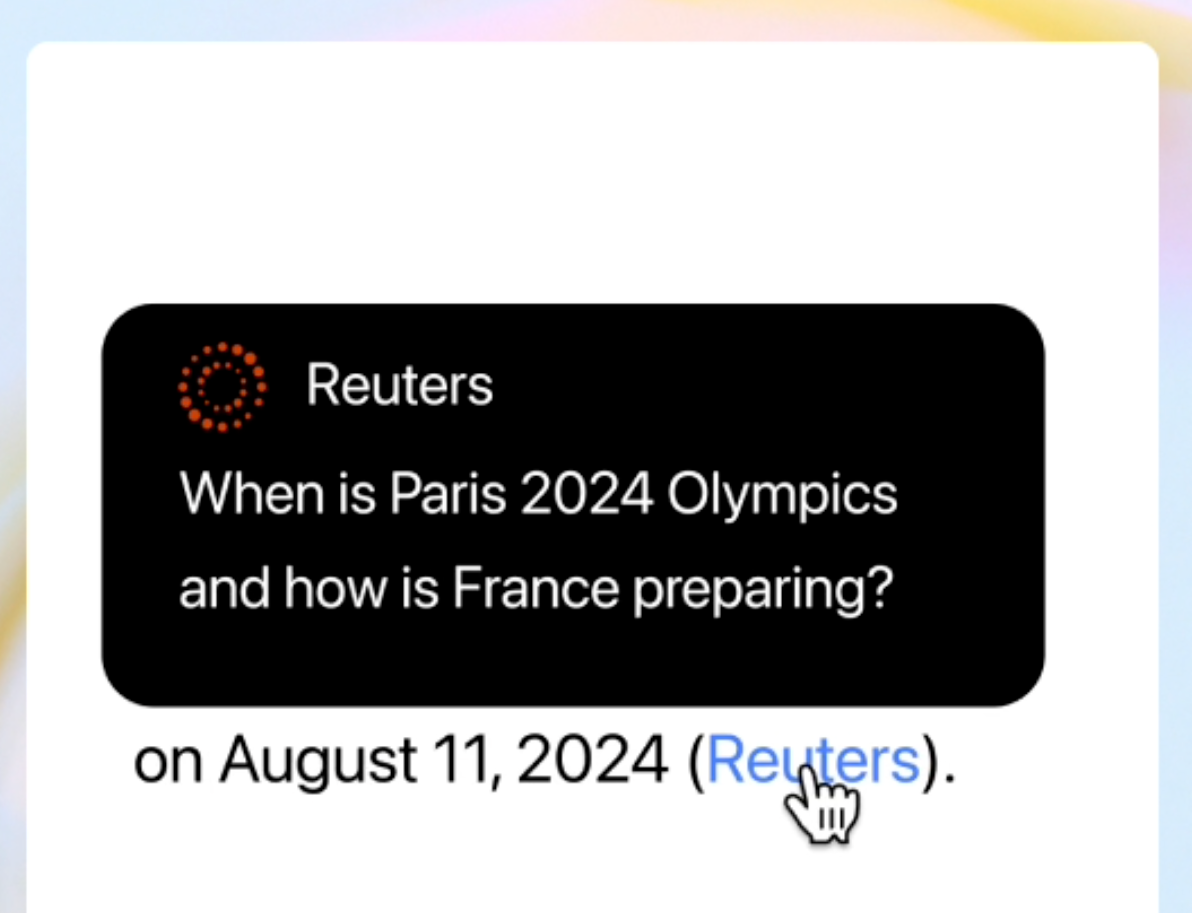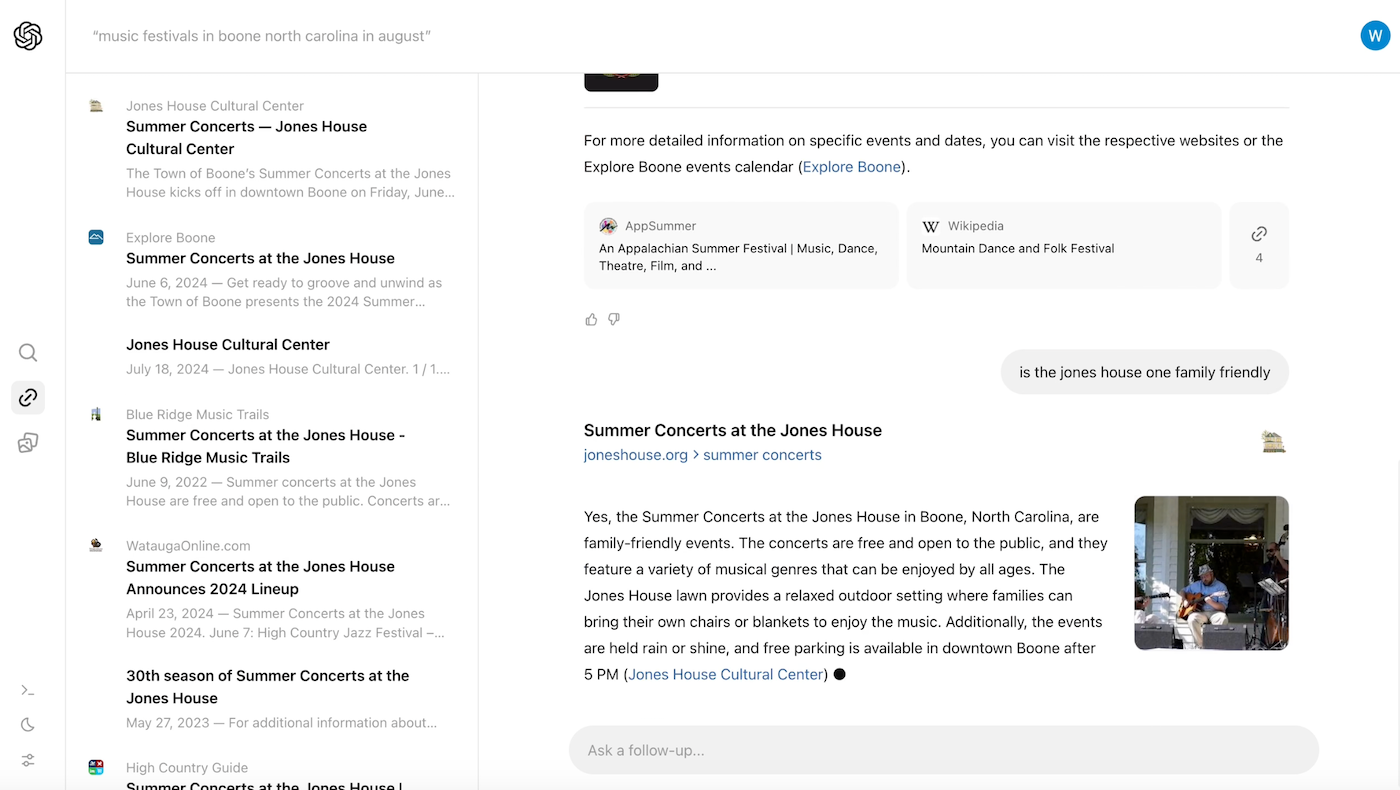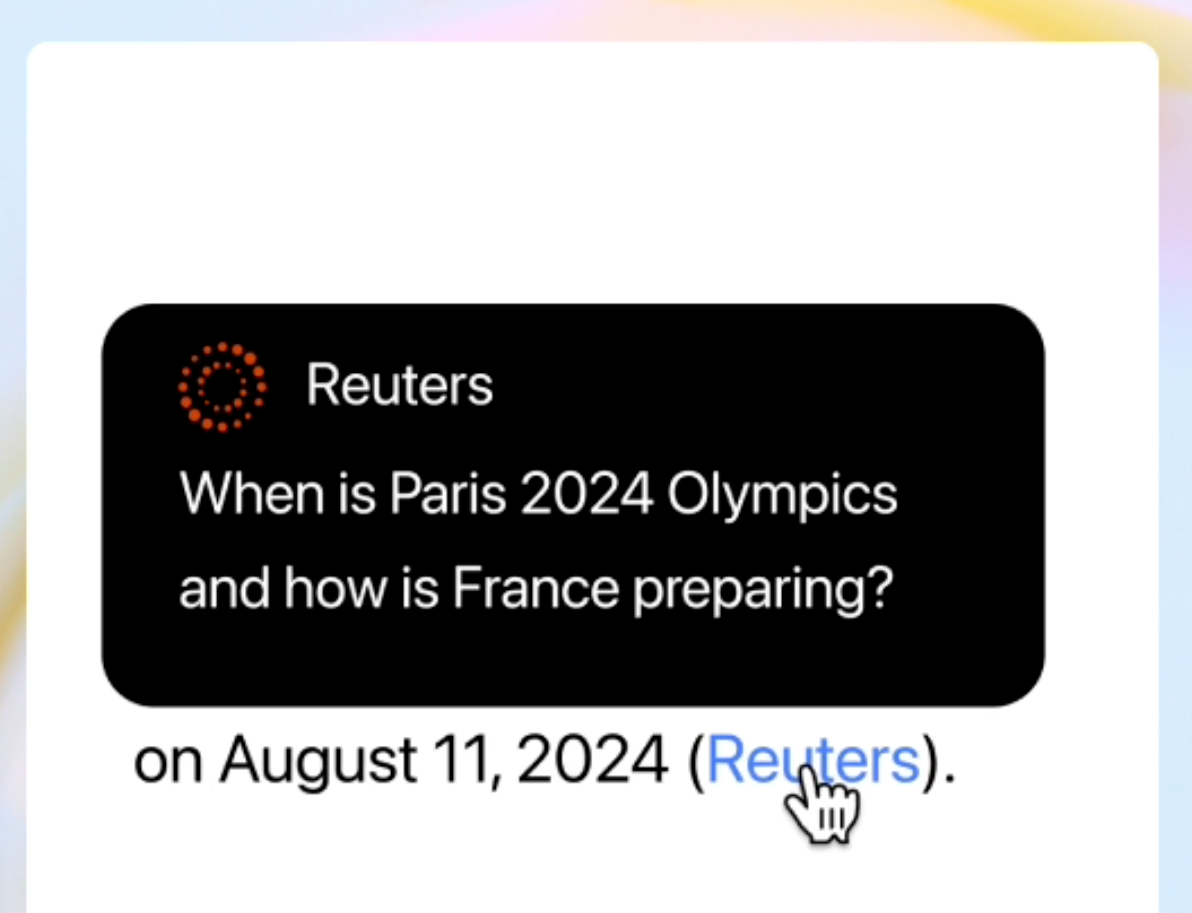
OpenAI Goes For Google With Search Engine Prototype
-
by Anoop Singh
- 6
OpenAI is releasing a prototype search engine replacement to “a small group of users and publishers,” possibly competing with Google Search. SearchGPT will combine machine-generated content with up-to-date information pulled from the web, OpenAI announced in a blog post on July 25.
Organizations interested in trying the SearchGPT prototype can join the waitlist.
‘Visual answers’ and natural language differentiate SearchGPT from Google
OpenAI differentiates SearchGPT from Google Search Generative Experience in a few ways.
Users can ask follow-up questions about their search using casual language. In the example below, “the jones house one” refers to the festival venue the user originally referenced.

Also, users will be able to open a tab to see links directly to websites, or get “visual answers,” which are charts or videos. It’s unclear yet whether visual answers will be AI generated, pulled from the web or a mix of both.
OpenAI has partnered with several media companies – among them The Atlantic and News Corp – and tried to reassure publishers that links to original content will be prominently displayed within SearchGPT results.

Google dominates the competitive landscape for SearchGPT, but that could change
Google may have been fixing what wasn’t broken for the past few years, optimizing Google Search to try to answer questions and to promote high-quality search results. The introduction of the AI-powered Search Generative Experience changed Google Search even more, adding bespoke replies to some queries. By the numbers, as of July 2023, Google holds 81.95% of worldwide search engine market share.
Meanwhile, Microsoft added first Bing Chat and then a refined generative AI answer format to its search engine.
The competition is over becoming a user’s first stop on the internet. If SearchGPT can grab market share as a front page, it could compete with the same search engines that have, over the last two years, added the generative AI that OpenAI is famous for.
SEE: Meta recently announced its most powerful AI model yet with Llama 3.1.
The nature of search engines are changing, too, from directories of internet content by topic to question-and-answer machines that happen to draw from the web.
“This is potentially huge news in the search world,” said Damian Rollison, director of market insights at marketing firm SOCi, in an email to TechRepublic. “ChatGPT is probably best positioned amongst all competitors to upset Google’s dominance in search, and aspects of the new interface, such as ‘visual answers,’ appear to be innovative and potentially disruptive. However, of all areas for ChatGPT to compete with Google, search is the one where Google’s power as an incumbent with a 26-year head start is strongest.”
The other major player in this space is Perplexity AI, which already positions itself as an “AI-powered answer engine.” Perplexity AI can be used on either a browser or in an app, and can draw from current information, unlike ChatGPT.
OpenAI is releasing a prototype search engine replacement to “a small group of users and publishers,” possibly competing with Google Search. SearchGPT will combine machine-generated content with up-to-date information pulled from the web, OpenAI announced in a blog post on July 25. Organizations interested in trying the SearchGPT prototype can join the waitlist. ‘Visual answers’…
OpenAI is releasing a prototype search engine replacement to “a small group of users and publishers,” possibly competing with Google Search. SearchGPT will combine machine-generated content with up-to-date information pulled from the web, OpenAI announced in a blog post on July 25. Organizations interested in trying the SearchGPT prototype can join the waitlist. ‘Visual answers’…
